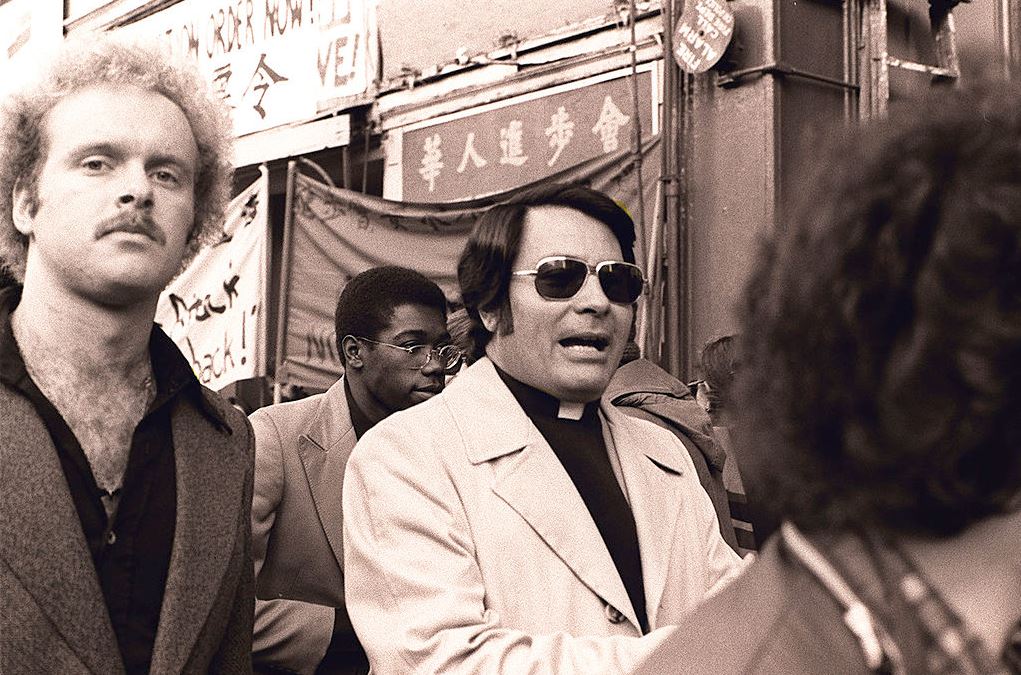Nov. 18 will mark 40 years since nearly 1,000 Americans—a majority of them African American—perished in a mass suicide/murder in the Jonestown compound in the jungles of Guyana. Many misconceptions surround this horror, but a new account dispels some common myths.
Cult leader Jim Jones is often portrayed as having been a normal fundamentalist Christian preacher. But as Daniel Flynn shows in “Cult City: Jim Jones, Harvey Milk, and 10 Days that Shook San Francisco,” Jones believed “the Bible is the root of all our problems today,” and he sought to “infiltrate the church” to spread the communist message.
Jones was also a racist. He used a racial epithet in reference to black activist Medgar Evers, and he called jazz icon Duke Ellington an “Uncle Tom.” The name-calling proved no obstacle when Jones moved to San Francisco. His People’s Temple congregation attracted some Black Panthers, and Jones became the darling of the California Democratic establishment.
In a letter to Cuban dictator Fidel Castro, then-state Assemblyman Willie Brown called Jones a “close personal friend and highly trusted brother in the struggle for liberation.” Liberal icon Tom Hayden hailed Jones for his “high standard of ethics and morality,” and the Los Angeles Herald-Examiner named the future mass murderer “Humanitarian of the Year.”
Jones’ admirers included California Gov. Jerry Brown, Lt. Gov. Mervyn Dymally and Congressman Phil Burton. San Francisco Mayor George Moscone appointed Jones commissioner of the city’s Housing Authority. San Francisco Supervisor Harvey Milk became one of Jones’ most eager advocates, writing that he had found “greatness … at Jim Jones’ People’s Temple.”
When Jones moved his flock to Guyana, some saw it as a better, more egalitarian society, free of racism, homophobia and sexist gender roles. Flynn, however, rightly calls it a “concentration camp” and notes that Jones piped in recorded audio of lengthy harangues by Angela Davis, who in 1979 won the Lenin Peace Prize and twice ran for vice-president of the United States Communist Party.
After growing public scrutiny—including a tense site visit by a political representative—Jones ordered the suicide of more than 900 followers. His guards murdered Congressman Leo Ryan and four others, and wounded now-Rep. Jackie Speier. After all that, Harvey Milk still refused to condemn Jonestown outright. “Guyana was a great experiment that didn’t work,” Milk said. “I don’t know, maybe it did.”
Milk’s judgement wasn’t always reliable—nor was his credibility. He claimed the U.S. Navy drummed him out of the service for being homosexual, but that wasn’t true. As Flynn shows, Milk was honorably discharged. In default accounts, fellow San Francisco Supervisor Dan White was a right-wing bigot who gunned Milk down because he was gay. That isn’t true either.
Flynn quotes then-City Supervisor Dianne Feinstein, now a U.S. senator, who said, “This had nothing to do with anybody’s sexual orientation. It had to do with getting back his position.”
Milk’s praise for Jim Jones was never shown in the 2008 biopic “Milk,”, which won two Oscars and featured Sean Penn in the lead role. In 2009, Milk was awarded the Presidential Medal of Freedom; a U.S. Navy ship also bears his name. As Flynn laments, “Myths prove harder to kill than men.”
Jim Jones told his followers, “God is Socialism, and I am Principle Socialism, and that’s what makes me God.” Forty years after Jonestown, politicians such as Alexandria Ocasio-Cortez are still hailing socialism with Pentecostal fervor.
Flynn urges readers to think with their brain, not their ideology. He concludes “Cult City” with the Jonestown placard, a quote from George Santayana: “Those who do not remember the past are condemned to repeat it.”
Fair enough, but nobody can remember what they never knew in the first place.
—
This article was republished with permission from The Independent Institute.
[Image Credit: Nancy Wong CC BY-SA 3.0]
















Leave a Comment
Your email address will not be published. Required fields are marked with *